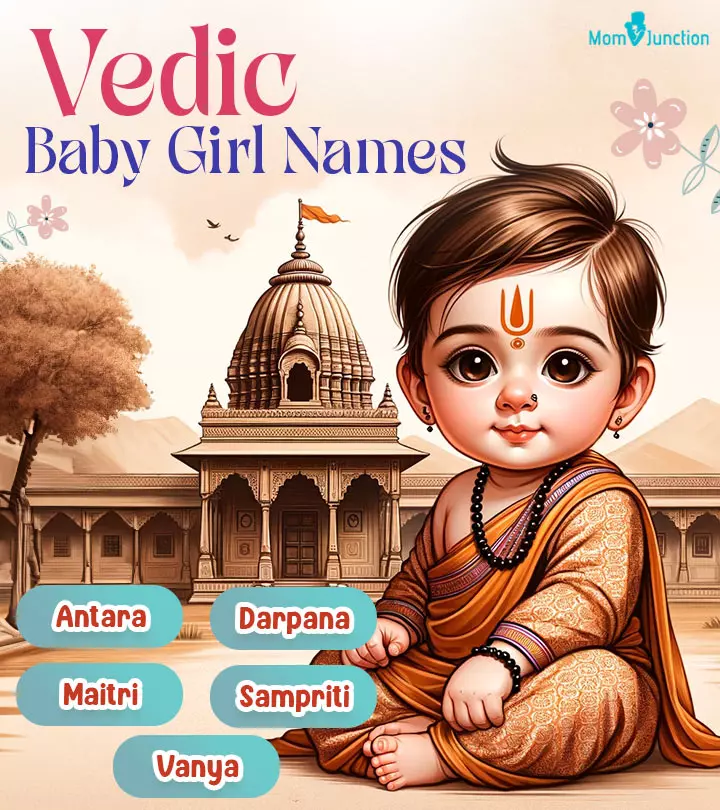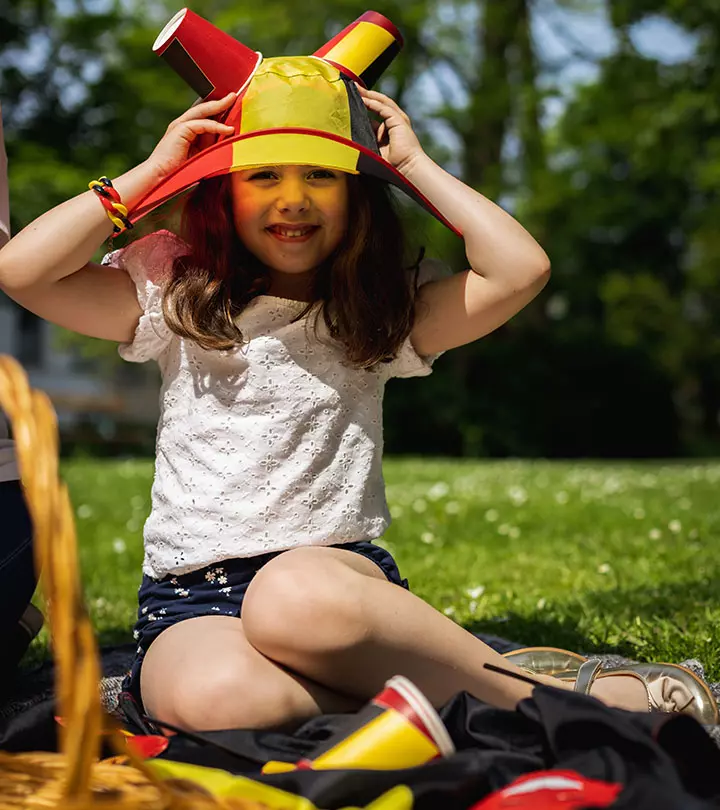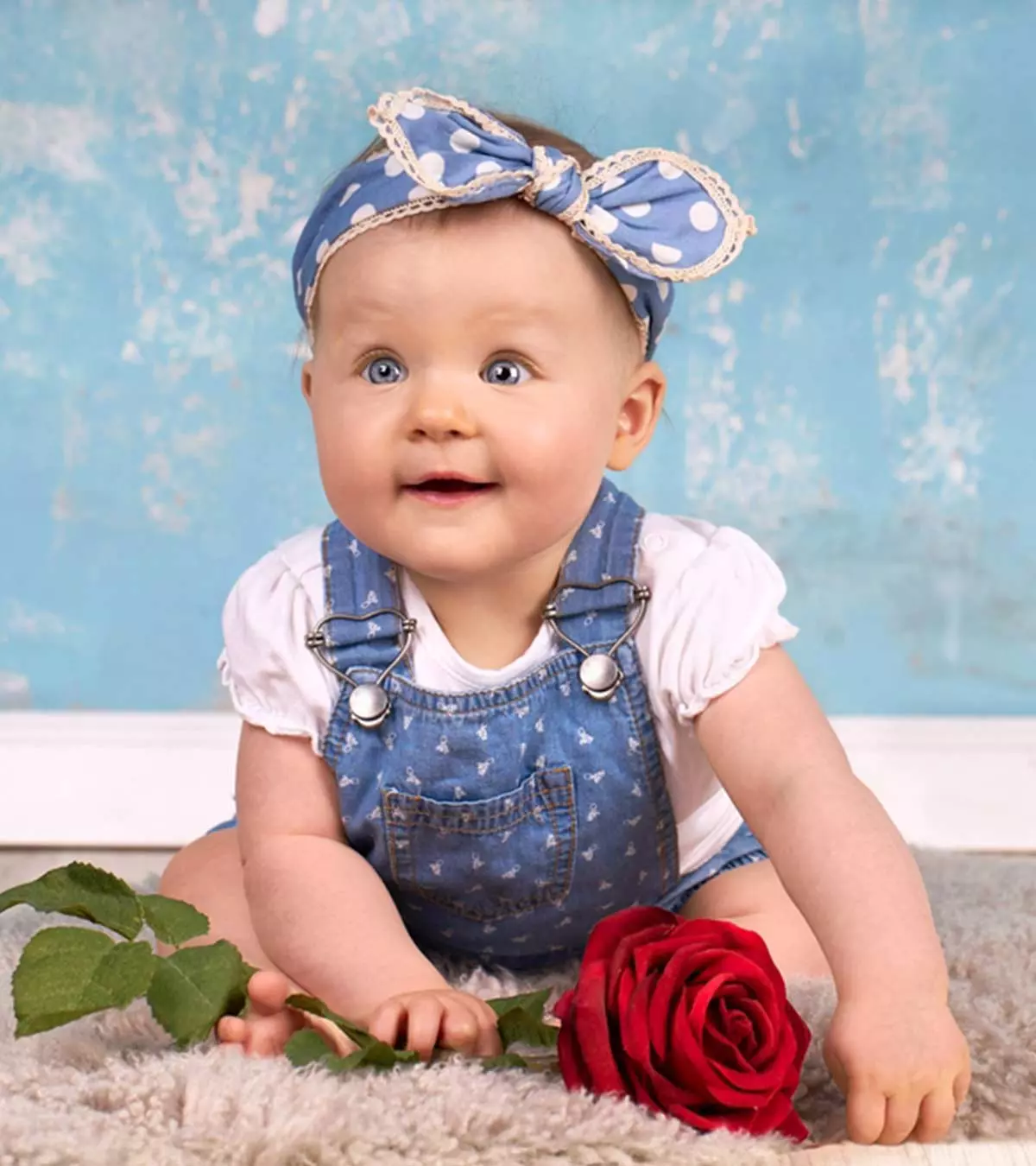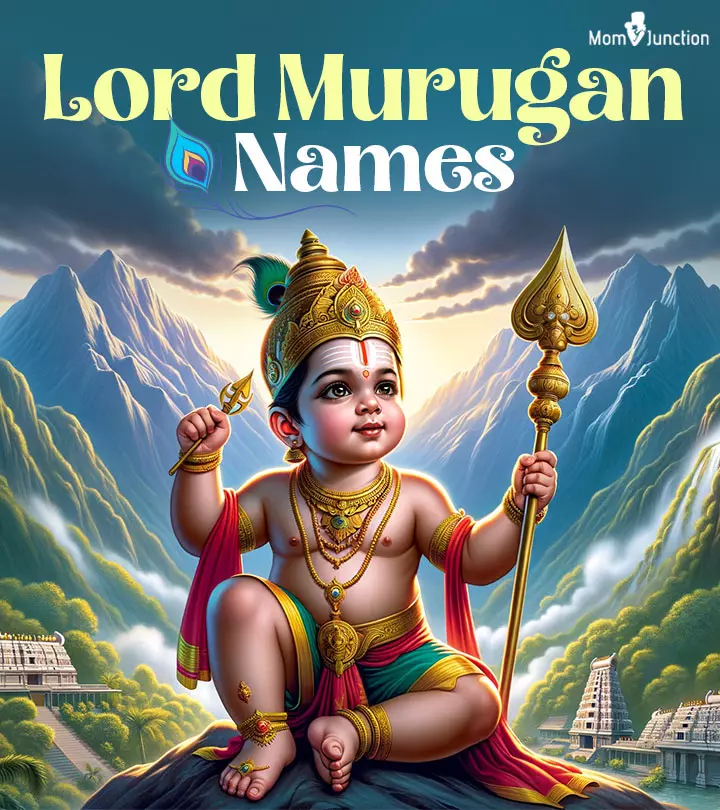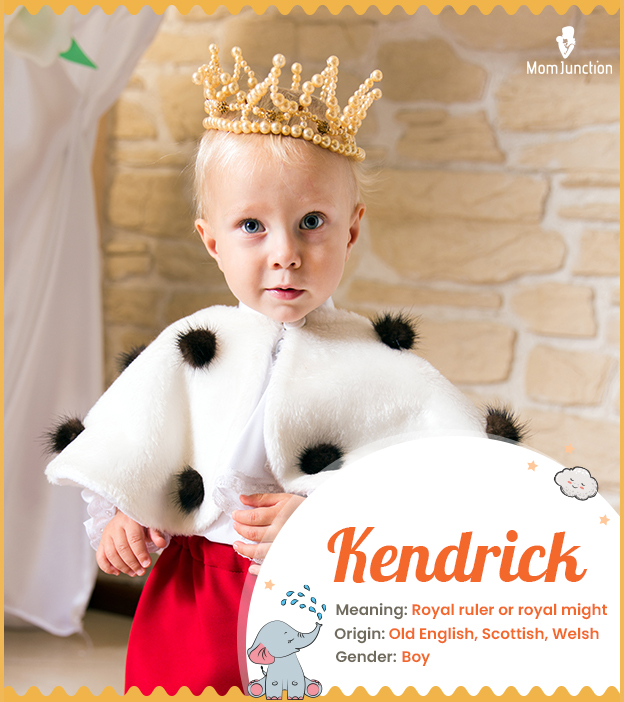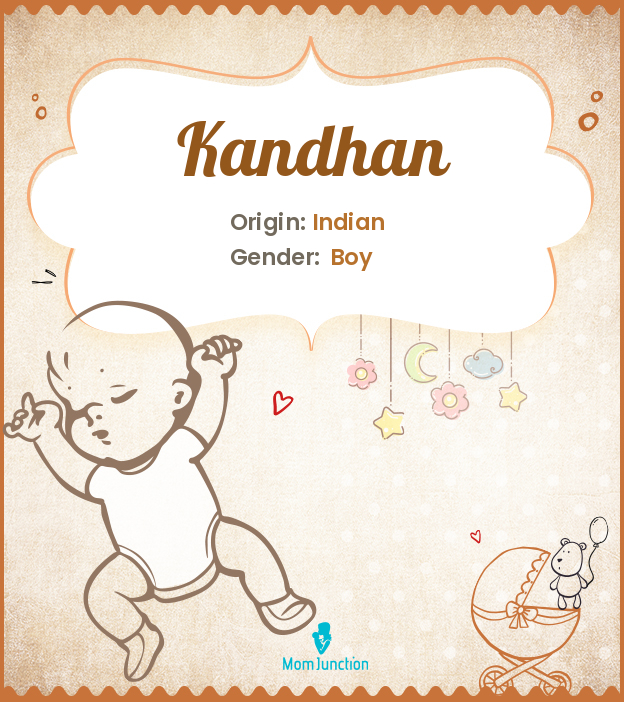
Image: Shutterstock
Before the 19th century, Swedish surnames were uncommon owing to the patronymic system. This system uses the addition of a prefix or suffix to the father’s name or other paternal ancestor’s name to derive a new name out of it for the next generation. Soldiers and members of the clergy and nobility began to adopt non-patronymic surnames. By the late 19th century, the surnames began to change and served as a reminder of the place where they lived or the occupation they were into. In the 17th and 18th centuries, people of the middle class adopted ornamental surnames formed of two elements. The first element was derived from the farm name or a topographical feature (1). Read this post as we bring you a list of Swedish surnames and their meanings.

List Of Popular Swedish Surnames Or Last Names
Swedish surnames are typically ornamental, derived from paternal names, geographical features, and sometimes, occupations (1). While you may have heard of common Swedish last names like Andersson, Johansson, and Karlsson, the list below features several other names, from Lindberg and Grendahl to Quarnstrom and Skarin. Read on to learn about their fascinating meanings and cultural significance.
1. Abramson
It means ‘son of Abram or Abraham (the Biblical figure)’ and is a variation of the patronymic surname ‘Abram.’ The surname is common in the Jewish community.
2. Ahlberg
This Swedish surname is composed of the words ‘al,’ meaning ‘alder,’ and ‘berg,’ meaning ‘mountain.’ The surname may have German origins as well, as a habitational name from places in Hesse and Dortmund (2).
3. Ahlgren
This is a Swedish surname, composed of ‘al,’ meaning ‘alder,’ and ‘gren,’ meaning ‘branch.’
4. Ahlin
It is a Swedish surname and is composed of ‘al,’ which means ‘alder,’ and the ‘in’ is derived from the Latin word ‘inus,’ or ‘inius,’ which means ‘descendant of.’ Pronounced ah-LEEN, this surname may have a topographic origin, adopted from a prominent alder tree at home.
5. Ahlman
This is a Swedish ornamental name composed of the prefix ‘al,’ which means ‘alder,’ and ‘man,’ meaning ‘man.’ In many places in Germany, this is a topographic name meaning ‘swamp man.’
6. Ahlquist
This ornamental surname consists of the words ‘al,’ which means ‘alder,’ and ‘quist,’ an old spelling for ‘kvist,’ which means ‘twig.’
7. Ahlstrom
It is an ornamental name composed of the elements ‘al,’ meaning ‘alder,’ and ‘strom,’ which means ‘river’ or ‘stream.’ The surname has Old Norse origins.
8. Akerman
Known to be the Swedish form of Ackermann, this surname is composed of the prefix ‘aker,’ which means ‘field,’ and ‘man’ meaning ‘man.’ Essentially, it is an occupational surname for a ‘ploughman.’
9. Akerson
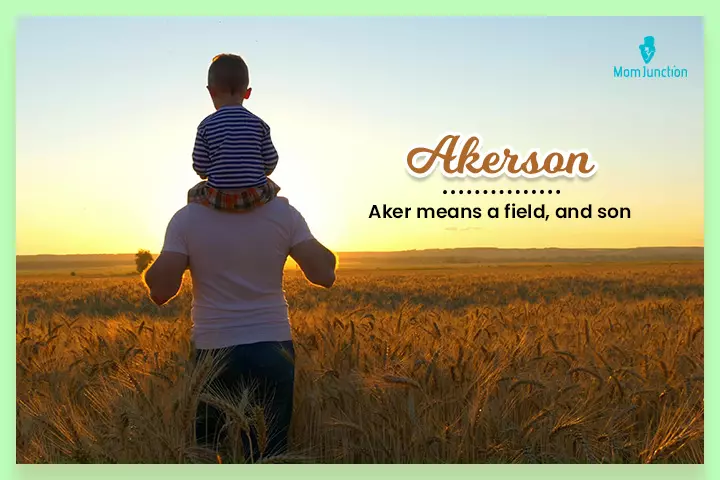
This surname belongs to a small group of Swedish names that end with ‘son’ but is not a patronymic. It is an ornamental name composed of the elements ‘aker’ meaning ‘field,’ and son, means ‘son.’
 Did you know?
Did you know?10. Almstedt
This is an ornamental name derived from the Swedish words ‘alm,’ which means ‘elm,’ and ‘stad,’ meaning ‘town.’
11. Andersson
This surname means ‘son of Anders or Andrew,’ which is derived from the Greek name Andreas, meaning ‘man’ or ‘manly.’ In Sweden, Andersson is one of the most common surnames.
12. Allinder
It is a common Swedish surname that has two elements, namely ‘al,’ which means ‘alder,’ and a common suffix ‘aner,’ meaning ‘man’ in Greek. It is an ornamental surname derived from a village called Småland in southern Sweden.
13. Alvin
This is another ornamental name and consists of the elements ‘alv,’ which means ‘elf,’ and the common suffix ‘in.’ It can connote ‘elf friend,’ ‘noble friend,’ or ‘old friend,’ according to its Anglo-Saxon roots.
14. Ameen
It is a Swedish surname in which the first part ‘ame’ could be the name of a place, and the ‘en’ is derived from the Latin word ‘enius,’ meaning ‘relating to.’ Ameen is also an Arabic surname meaning ‘trustworthy’ or ‘honest.’
15. Anderberg
This ornamental surname is composed of the elements ‘ander,’ which is probably derived from the Greek word ‘andros,’ meaning ‘man,’ and ‘berg,’ meaning ‘mountain.’
16. Anfinson
A common surname in Sweden and Norway, it consists of the elements ‘arn,’ which means ‘eagle,’ and ‘finnr,’ meaning ‘Finn (Finnish).’ It is also considered a more Americanized version of the surnames Anfinsen or Anfinnsen.
17. Angerman
This Swedish surname is a shortened form of the Latinized regional name ‘angermannius,’ which means ‘man from the country of Angermanland.’ It is also a German topographic name meaning ‘man who lives near a meadow.’
18. Ansell
It is a compound name composed of ‘ans,’ which is probably the name of a place, and ‘ell,’ a common suffix derived from the Latin word ‘elius.’ Ansell is also an English surname rooted in the German-origin name Anselm, meaning ‘God’s protection.’
19. Aslin
This topographic name consists of the elements ‘as,’ meaning ‘ridge’ and ‘lin,’ a common suffix in Swedish last names meaning ‘relating to.’
20. Asplund
This ornamental surname is composed of the elements ‘asp,’ meaning ‘aspen,’ and ‘lund,’ meaning ‘grove.’
21. Axelson
This is a patronymic form of Axel, which means ‘father of peace.’ Axelsson is also spelled as Axelsen in Danish, Norwegian, and German.
22. Backlund
It is an ornamental name consisting of the elements ‘back,’ which means ‘hill,’ and ‘lund,’ which means ‘grove.’
23. Backman
It is an ornamental name consisting of the elements ‘back(e),’ meaning ‘hill,’ and ‘man,’ which means ‘man.’ In German and English, it is an occupational surname for a master baker.
24. Beckius
It is an ornamental name composed of the elements ‘back,’ which means ‘stream,’ and ‘ius,’ a common suffix.
25. Bergdahl
An ornamental name, Bergdahl consists of the elements ‘berg,’ which means ‘mountain’ and ‘dal,’ meaning ‘valley.’
26. Berggren
This Swedish surname consists of the elements ‘berg,’ which means ‘mountain,’ and ‘gren,’ meaning ‘branch.’
27. Bergstedt
This ornamental Swedish surname consists of the elements ‘berg,’ which means ‘mountain,’ and ‘stedt,’ which could be the name of a place. However, the place Bergstedt in Germany has nothing to do with the Swedish surname; it comes from the personal name Beric, meaning ‘barley farm.’
28. Bergsten
It is an ornamental surname consisting of the elements ‘berg,’ meaning ‘mountain,’ and ‘sten,’ which means ‘stone.’ It is associated with C. Fred Bergsten, an American economist, policy advisor, and the founding director of the Peterson Institute of International Economics (3).
29. Bergstrand
This ornamental name is composed of the elements ‘berg,’ which means ‘mountain,’ and ‘strand,’ meaning ‘shore.’
30. Birger
This Swedish surname is derived from the Scandinavian personal name Birger, which means ‘one who saves, protects, or helps.’ It is a rare surname in Sweden.
31. Bjorklund
This is a habitational surname where ‘bjork’ means ‘birch’ and ‘lund’ means ‘grove.’ It can also be considered an ornamental surname.
32. Bjornberg
Bjornberg is a Swedish ornamental name of Scandinavian origin meaning ‘bear mountain.’
33. Bjurstrom
This ornamental name consists of the elements ‘bjur,’ which means ‘beaver,’ and ‘strom,’ which means ‘river’ or ‘stream.’
34. Blaustein
Of German origin, this Swedish surname consists of two elements; the first element, ‘blau,’ means ‘blue,’ and the second element, ‘stein,’ means ‘stone.’ This surname refers to ‘lapis lazuli’ and is commonly used by the Ashkenazi Jew community.
35. Blixt
It could be a soldier’s name or an ornamental name. It means ‘bolt of lightning.’ It was associated with young men who went to do their military service during the time when it was common to have patrilineal surnames in Sweden.
36. Blomberg
It is an ornamental surname, where ‘blom’ stands for ‘flower or bloom’ and ‘berg,’ which means ‘mountain.’ In German, it is a habitational surname for places named Blomberg in Lippe district and Friesland.
 Trivia
Trivia37. Blomgren
This Swedish surname is composed of the elements ‘blom,’ which means ‘flower or bloom,’ and ‘gren,’ which means ‘branch.’
38. Boberg
It is a habitational and ornamental name composed of the elements ‘bo,’ which means ‘dwelling’ or ‘farm,’ and ‘berg,’ which means ‘mountain’ or ‘hill.’ Boberg has German and Norwegian usage as well.
39. Bodeen
This is a topographic, habitational, or ornamental name with the elements ‘bod,’ which means ‘small hut,’ and the suffix ‘en,’ which is Latin for ‘relating to.’ Boden also has roots in the German given name Bode, meaning ‘messenger,’ and Irish origins, where it means ‘descendant of Buadán.’
40. Bolling
It is an ornamental name that consists of the name Boll and suffix ‘-ing’ meaning ‘belonging to.’ It might also be a habitational name. Bolling also has English origins referring to ‘someone with a large head’ and German origins, meaning ‘bold’ or ‘brave.’
41. Boman
It could be an ornamental name as it contains the elements ‘bo,’ meaning ‘dwelling’ or ‘farm,’ and ‘man,’ which means ‘man.’ It could also be a topographic name for someone who lived on an outlying homestead.
42. Branting
This could be a habitational name. The element ‘brant’ means ‘steep hill,’ and ‘ing’ is a common suffix in Swedish surnames meaning ‘belonging to.’ It can refer to those who lived near a steep hill.
43. Bratt
This surname is derived from the old Norse personal name ‘Brattr,’ which means ‘majestic,’ or ‘proud.’ It can also be a topographic name referring to ‘steep’ places.
44. Broberg
This is an ornamental name composed of the elements ‘bro,’ meaning ‘bridge,’ and ‘berg,’ meaning ‘mountain.’ It also has Norwegian usage as a habitational name with the same Swedish meaning.
45. Brunell
An ornamental name, it consists of ‘brun,’ meaning ‘brown,’ and the suffix ‘ell,’ which is a derivative of the Latin word ‘elius.’ Brunell is also an English descriptive name for those with a brown complexion.
46. Callander
Callander could be a variant of Carlander, which contains the Swedish element ‘Karl,’ meaning ‘free man,’ and ‘ander,’ an ornamental suffix from the Greek words ‘aner,’ or ‘andros,’ also meaning ‘man.’
47. Carby
This could be a habitational name in Sweden and is derived from the words ‘karl,’ meaning ‘free man,’ and ‘byr,’ which means ‘village.’ Carby also has Danish usage with the same meaning.
48. Cederholm
It is an ornamental name composed of the elements ‘ceder,’ meaning ‘cedar,’ and ‘holm,’ meaning ‘island.’
49. Clarin
It might be a derivative of the word ‘klar,’ which means ‘clear,’ and the suffix ‘inius,’ is derived from Latin and means ‘relating to.’ Clarin is also a French name and a pet form of Clair, meaning ‘clear’ or ‘bright.’
50. Cornell
This Swedish last name is derived from Latin and means ‘horn,’ based on the given name Cornelius. Cornell also has English origins as a habitational name from Cornhill, Cornwell, or Cornwall.
51. Cronquist
This ornamental surname consists of ‘kron,’ which means ‘crown,’ and ‘quist,’ which is the old spelling of ‘kvist,’ meaning ‘twig.’ The name may indicate a family connection to nobility or land-owning aristocracy.
52. Dahl
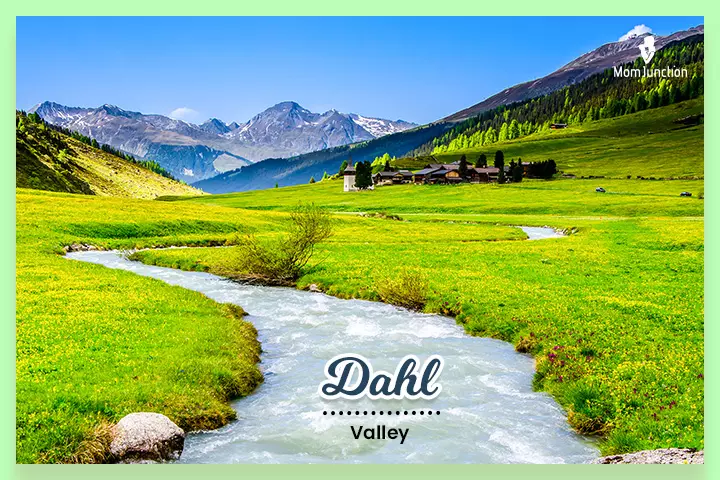
This popular Swedish surname is derived from an Old Norse name ‘dalr,’ which means ‘valley.’ A well-known personality with this surname is Roald Dahl, whose popular works include Matilda and Charlie and the Chocolate Factory (4).
53. Dahmen
This surname consists of two elements. The first one, ‘Dahm,’ could be the name of a place, while the suffix ‘en’ is derived from the Latin word ‘enius,’ which means ‘relating to.’
54. Dahlberg
This Swedish surname is also an ornamental name. The first element, ‘dal,’ means ‘valley,’ and the second element, ‘berg,’ means ‘mountain.’
55. Degn
This Swedish surname is derived from an occupational name ‘degn,’ which means ‘deacon.’ This word is further derived from the Latin word ‘diaconus,’ which means ‘servant.’
56. Ekholm
This ornamental name consists of the elements ‘ek,’ meaning ‘oak’ and ‘holm’ meaning ‘island.’
57. Ekblad
This is an ornamental name that consists of ‘ek,’ which means ‘oak,’ and ‘blad,’ meaning ‘leaf.’
58. Ekstrand
This ornamental name is composed of the elements ‘ek,’ which means ‘oak,’ and ‘strand,’ meaning ‘shore’ or ‘beach.’
59. Eld
This Swedish surname is derived from the Old Norse name ‘eldr,’ which means ‘flame,’ or ‘fire.’ Eld also has English origins, referring to ‘old age.’
60. Elg
It is an ornamental Swedish surname derived from the word ‘alg,’ which means ‘moose.’
61. Eliasson
This is a patronymic form of the personal name Elias, which is a name borne by a Biblical prophet (5). It is another form of the name Elijah, meaning ‘my God is Yahweh.’
62. Elm
It is an ornamental name derived from the word ‘alm(e),’ which means ‘elm grove.’ In English, the surname denotes an ‘elm tree.’
63. Enberg
This could be an ornamental name as it is composed of the elements ‘en,’ which means ‘juniper,’ and ‘berg,’ meaning ‘mountain.’ Enberg may also be derived from the word ang, meaning ‘meadow.’
64. Eriksson
It is a Swedish patronymic surname meaning ‘son of Erik.’ The personal name Eric is composed of the element ‘ei,’ which means ‘one, alone, unique,’ and ‘rikr,’ which means ‘king,’ or ‘ruler.’
65. Fager
This is probably an ornamental name or a derivative of a by name. It means ‘handsome’ or ‘beautiful.’
66. Fahlgren
This is an ornamental-habitational name formed with the elements ‘fal,’ which means ‘plain’ or ‘flat land,’ and ‘gren,’ meaning ‘branch.’
67. Ferm
This could be a soldier’s name derived from the Swedish word ‘farm,’ which means ‘prompt,’ or ‘ready.’
68. Flink
In Swedish, the word ‘flink’ means ‘quick,’ ‘agile,’ or ‘nimble.’ It could be a monothematic name adopted by a group of peasants serving in the army and later transmitted to their descendants. The name can also have Ashkenizic Jewish roots.
69. Floren
This ornamental name is derived from the word ‘flor,’ which means ‘flower’ and the suffix ‘en’ is derived from the Latin word ‘enius,’ meaning ‘relating to.’
70. Grahn
It could be an ornamental name derived from the word ‘gran,’ which means ‘spruce.’ It could also be a topographical name after a place called Gran. Grahn is also used as a surname in Finland.
71. Granat

This could be a soldier’s name derived from the word ‘granat,’ which means ‘grenade’ or ‘shell.’ Interestingly enough, this surname also has Polish and French roots and means ‘pomegranate’ and ‘garnet,’ respectively.
72. Grendahl
It is an ornamental Swedish last name with two elements. The first one, ‘gren,’ means ‘branch,’ and the second one, ‘dahl,’ means ‘valley.’
73. Gulliksson
This is a patronymic name derived from the personal name Gullik, which is further derived from an Old Norse name Gudleikr which is a compound of ‘gud’ meaning ‘God’ and ‘leikr,’ which means ‘fight’ or ‘struggle.’
74. Gunnarson
Another patronymic name, Gunnarson is derived from the personal name Gunnar, which in turn is derived from an Old Norse name Gunnarr, which consists of the elements ‘gunn,’ which means ‘battle,’ and ‘arr,’ meaning ‘warrior.’
75. Hagberg
This could be an ornamental name; it consists of the elements ‘hage,’ meaning ‘enclosure,’ and ‘berg,’ which means ‘hill’ or mountain.’
76. Hammar
This is a habitational name derived from a place named ‘hamarr,’ which is an Old Norse name and refers to a hammer-shaped ‘crag’ or ‘cliff.’ It also has Hungarian roots and means ‘fast.’
 Trivia
Trivia77. Hassel
It could be an ornamental name derived from the Swedish word ‘hassel,’ which means ‘hazel.’ It could also be a habitational name containing the element ‘Hassel.’ It also has German roots as a topographic name with the elements ‘has,’ meaning ‘marsh,’ and ‘lo,’ meaning ‘wooded lowland.’
78. Hedberg
This ornamental Swedish last name is composed of the elements ‘hed,’ which means ‘heath’ or ‘moor,’ and ‘berg, which’ means ‘hill.’
79. Hellen
It is an ornamental Swedish name formed from the words ‘hall,’ which means ‘rock’ or ‘stone,’ and the suffix ‘en,’ which is derived from the Latin word ‘enius,’ meaning ‘relating to.’ Hellen is also a habitational name from Brittany.
80. Hansson
This patronymic name is derived from the personal name Hans, which means ‘the Lord is gracious.’ Hansson means ‘son of Hans.’
81. Ingerman
It is a regional name derived from a place known as Ingermanland (Ingria), which is a former province between Finland and Russia. It also has Yiddish origins derived from the phrase ‘inger man,’ meaning ‘younger man.’
82. Isberg
This ornamental name is composed of the elements ‘is,’ which means ‘ice,’ and ‘berg,’ which means ‘mountain.’
83. Jansson
It is a patronymic name derived from the personal name Jan, which is a reduced form of Johannes, a derivative of John, meaning ‘God is gracious.’ Jansson also has Finnish, Dutch, German, and Norwegian usage.
84. Johansson
This is one of the most common Swedish surnames after Anderson. It is a patronymic name, which means ‘son of Johan.’ Johan is a derivative of John, meaning ‘God is gracious.’
85. Kallgren
This ornamental name consists of the elements ‘kalla,’ which means ‘spring source,’ and ‘gren,’ meaning ‘twig.’
86. Kalmar
This Swedish last name is a habitational name and is derived from the name of a seaport known as ‘Kalmar,’ which is located opposite the island of Oland. The surname has historical significance as it represents where the signing of the Union of Kalmar took place in 1397, uniting Sweden, Norway, and Denmark under one rule (6).
87. Karlsson
It is another common surname in Sweden and is a patronymic name meaning, ‘son of Karl,’ or ‘ Karl’s son.’ The common alternative spelling for it is Carlsson.
88. Kindell
This ornamental surname consists of the word ‘kind,’ which means ‘family’ or ‘tribe,’ and the suffix ‘ell,’ which is derived from the Latin word ‘elius.’
89. Kjellberg
It is an ornamental name composed of the elements ‘kalla,’ which means ‘spring,’ and ‘berg,’ which means ‘mountain.’ The surname is quite famous as it relates to the 19th-century Swedish sculptor Agnes Kjellberg (7). Among contemporaries, it is associated with Felix Kjellberg, a Swedish YouTuber better known as PewDiePie.
90. Kronholm
It is an ornamental name that is composed of the elements ‘kron,’ which means ‘Crown,’ and ‘holm,’ which means ‘inlet’ or ‘island.’ Kronholm is also a Danish habitational surname.
91. Kvistad
This could be a habitational name named after the place Kvistad, or it could be an ornamental name consisting of the elements ‘kvist,’ which means ‘twig’ and ‘stad,’ which means ‘town.’
92. Lagergren
This ornamental name is composed of the elements ‘lager,’ which means ‘laurel,’ and ‘gren,’ which means ‘branch.’ The surname is also associated with a prominent Swedish noble family.
93. Landberg
This ornamental Swedish last name contains two elements. The first one is ‘land,’ which means ‘country,’ and the second element, ‘berg,’ means ‘hill,’ or ‘mountain.’ It is said to originate from the German surname Landsberg.
94. Landin
This Swedish surname consists of two elements; the first one is ‘land,’ which means ‘land,’ and the second one is a common suffix in Swedish surnames and is derived from the Latin word ‘inius,’ which means ‘relating to.’
95. Levander
This Swedish surname has many origins. Some say it is an ornamental name picked by a 19th-century priest from the name of his home farm, Hjartungen, with Hjarta standing for ‘heart,’ which is translated as ‘lev’ in Hebrew. The suffix ‘ander’ is derived from the Greek word ‘andr,’ meaning ‘man’ (8). Others say it is derived from Levene, a place in the Vastergotland province.
96. Liden
It is an ornamental name that consists of two parts; the first one is ‘lid,’ which means ‘hill,’ and the common suffix ‘en’ is derived from the Latin word ‘enius,’ meaning ‘relating to.’
97. Liljedahl
This Swedish surname is composed of the elements ‘lilje,’ which means ‘lily,’ and ‘dahl,’ which is an old spelling of ‘dal,’ meaning ‘valley.’ It is also a habitational name in Norway.
98. Lindbeck
This ornamental name is composed of the elements ‘lind,’ which means ‘lime tree,’ and ‘beck,’ which means ‘stream.’ The surname is associated with distinguished Swedish economist Assar Lindbeck, who presided over the committee that awarded the Nobel Prize in Economics (9).
99. Lindborg
This is another ornamental name and consists of the elements ‘lind,’ which means ‘lime tree,’ and ‘borg,’ which means ‘castle.’
100. Lindgren
It is an ornamental name composed of the elements ‘lind,’ which means ‘lime tree,’ and ‘gren,’ which means ‘branch.’
101. Lundeen
This Swedish surname is an ornamental name composed of the element ‘lund,’ which means ‘grove,’ and the suffix ‘een’ is derived from the Latin word ‘enius.’ Lundeen is a spelling variant of the surname Lunden.
102. Lundholm
It is an ornamental surname composed of the elements ‘lund,’ which means ‘grove,’ and ‘holm,’ which means ‘island.’
103. Mahlberg
The first element of this surname might be the ornamental spelling of a place name element ‘mal,’ which means ‘gravel.’ The second element, ‘berg,’ means ‘mountain.’
104. Malmberg
This ornamental name is composed of ‘malm,’ which means ‘iron ore,’ ‘sand,’ or ‘gravel,’ and ‘berg,’ meaning ‘mountain.’ It essentially means ‘iron mountain.’
105. Mathiasson
It is a patronymic derived from the personal name Mathias, which is the Swedish form of Matthew. Matthew is a biblical name that means ‘gift of God.’
106. Moberg

This is an ornamental or a topographic name composed of the elements ‘mo,’ which means ‘sandy heath,’ and ‘berg,’ which means ‘mountain.’ Interestingly, Moberg means ‘big river’ in Norwegian.
107. Mogren
It is an ornamental name that is composed of the elements ‘mo,’ which means ‘sandy heath,’ and ‘gren,’ which means ‘branch.’
108. Mossberg
This ornamental Swedish surname is composed of the elements ‘mosse,’ which means ‘peat bog,’ and ‘berg,’ which means ‘mountain.’ Mossberg also has some Ashkenazic Jewish usage, where it is taken as an extension of the name Moses, with the suffix ‘berg’ meaning ‘mountain.
109. Naslund
This is an ornamental or a topographic name that consists of the elements ‘nas,’ which means ‘isthmus’ or ‘narrow neck of land,’ and ‘lund,’ which means ‘grove.’
110. Nordin
This is a common Swedish surname formed by the elements ‘nord,’ which means ‘north,’ and the common suffix ‘in,’ which is derived from the Lantin word ‘inius,’ meaning ‘descendant of.’
111. Nordman
It is a Swedish surname composed of the elements ‘nord,’ which means ‘north,’ and ‘man,’ meaning ‘man.’ It is a variant of the German surname Nordmann.
 Trivia
Trivia112. Nordmark
It is an ornamental name that consists of the elements ‘nord,’ which means ‘north,’ and ‘mark,’ which means ‘land.’ The surname also has Norwegian origins and means ‘north wood.’
113. Norgaard
This is a habitational name meaning ‘north farm’ and is derived from ‘nord,’ which means ‘north,’ and ‘gard,’ which means ‘farm.’ Norgaard has Danish and Norwegian usage as well.
114. Nylander
It is a topographic or ornamental name which means ‘dweller on new land,’ wherein ‘ny’ means ‘new’ and ‘land’ means ‘land’ with the suffix ‘er.’ The latter half of the name may also be derived from the Greek ‘ander,’ meaning ‘man.’
115. Nyholm
It is an ornamental name composed of the elements ‘ny,’ which means ‘new,’ and ‘holm,’ which in Old Norse means ‘island.’ The name was famously associated with Arvid Frederick Nyholm, a Swedish-American artist (10).
116. Oberg
It is an ornamental name composed of ‘O,’ meaning ‘island,’ and ‘berg,’ meaning ‘mountain.’ Besides Swedish, this surname has Norwegian, Danish, and German usage.
117. Oquist
This ornamental name is composed of the elements ‘O,’ which means ‘island,’ and ‘quist,’ which is an old ornamental spelling of ‘kvist,’ meaning ‘twig.’
118. Osbeck
It could be an ornamental or topographic name composed of three elements, wherein ‘os’ means ‘river mouth,’ ‘as’ means ‘hill’ or ‘ridge,’ and ‘beck’ means ‘stream.’
119. Oster
This topographic surname is derived from the Swedish name ‘Oster,’ which means ‘eastern,’ and denotes someone who lives to the east of a settlement. However, in German, Oster means ‘Easter,’ and in Dutch, it means ‘east army.’
120. Osterling
It is an ornamental name that consists of the elements ‘oster,’ meaning ‘eastern’ and the common suffix ‘ling,’ meaning ‘belonging to.’
121. Palme
This is a surname adopted by a notable Swedish family in honor of their founder Palme Lyder, a merchant who came to Ystad in Sweden from the Netherlands (11). It can also refer to the ‘palm tree’ or the medieval name Palmatius.
122. Quarnstrom
This ornamental name is composed of the elements ‘kvarn,’ which means ‘mill,’ and ‘strom,’ which means ‘river.’ Kvarnström and Qvarnström are its other spelling variants.
123. Rosander
The ornamental name consists of the element ‘ros,’ which means ‘rose,’ and the suffix ‘ander,’ which is derived from the Greek word ‘aner,’ meaning ‘man.’
124. Ryden
It is an ornamental name with two elements. ‘Ryd’ refers to ‘woodland clearing,’ and the common suffix ‘-en’ is derived from the Latin word ‘enius,’ meaning ‘relating to.’
125. Safstrom
It is an ornamental name composed of the Swedish name ‘saf,’ which is an old ornamental spelling of ‘sav,’ meaning ‘rush,’ and ‘strom,’ meaning ‘river.’
126. Sandahl
This ornamental name consists of the elements ‘sand,’ meaning ‘sand,’ and ‘dahl,’ which is an ornamental spelling of ‘dal,’ meaning ‘valley.’
127. Sandvik
This is an ornamental name composed of the elements ‘sand,’ which means ‘sand,’ and ‘vik,’ which means ‘bay’ or ‘inlet.’ The name has Old Norse origins and is also used by Norwegians.
128. Satterlund
This ornamental Swedish surname consists of the first element ‘satter,’ which means ‘mountain pasture’ or ‘outlying meadow,’ and the second element ‘lund,’ which means ‘grove.’
129. Segersson
It is a patronymic surname derived from the personal name ‘Siger,’ which is further derived from the Old Norse word ‘sigr,’ meaning ‘victory’ and the suffix ‘son,’ meaning ‘son.’
130. Selberg
This Swedish last name is composed of two elements, namely ‘sel,’ which means ‘a stretch of smooth water,’ and ‘berg,’ which means ‘mountain.’ Selberg is also a North German habitational name and a Norwegian surname meaning ‘willow mountain.’
131. Settergren
This ornamental name is composed of two elements, namely ‘sater,’ which means ‘mountain pasture’ or ‘outlying meadow,’ and ‘gren,’ meaning ‘branch.’
132. Sjoberg
It is an ornamental name composed of the elements ‘sjo,’ which means ‘sea’ or ‘lake,’ and ‘berg,’ which means ‘mountain.’
133. Skarin
This is an ornamental or topographic name composed of the word ‘skar,’ which means ‘edge,’ ‘cleft,’ or ‘crevice,’ and the suffix ‘in,’ which is derived from the Latin word ‘inius.’
134. Spong
It is a topographic or ornamental name derived from the word ‘spang,’ which means ‘footbridge,’ or ‘plank.’ It is also a Middle English word that means ‘narrow strip of land.’
135. Stahlberg
This ornamental Swedish last name is composed of the elements ‘stahl,’ which means ‘steel,’ and ‘berg,’ meaning ‘mountain.’ The surname was famously carried by Kaarlo Juho Stahlberg, the first President of the Finnish Republic (12).
136. Sundstorm
This is probably an ornamental name as it is composed of the elements ‘sund,’ meaning ‘sound’ or ‘passage of water,’ and ‘strom,’ meaning ‘river.’ It could also be a topographical name for someone who lived by a river running into a strait.
137. Svensson
It is a patronymic name derived from the personal name ‘Sven,’ which is in turn derived from the Old Norse word ‘Sveinn,’ which is originally a by name meaning ‘boy’ or ‘servant.’
138. Sylvan
This name is a derivative of the Latin name ‘sylvanus,’ which means ‘forest’ or ‘pertaining to a wood or a forest.’
139. Thunberg
It is an ornamental name derived from the word ‘thun,’ which is an old spelling of ‘tun,’ which means ‘fence or yard’ and ‘berg,’ which means ‘mountain.’ Among contemporaries, the name is carried by famous Swedish environmental activist Greta Thunberg (13).
140. Torborg
It is a Swedish last name derived from the personal name Tor or Thor, which means ‘thunder,’ and ‘borg,’ which means ‘fortress.’
141. Underberg
This is a topographic name for someone who lived at the foot of a hill. It comes from the Old Norse words ‘undir,’ meaning ‘under,’ and ‘berg,’ meaning ‘mountain,’ or ‘hill.’
142. Vallin
This is a habitational name where ‘val’ means ‘valley’ or ‘grassy pasture.’ The suffix ‘in’ is derived from the Latin word ‘inius,’ which means ‘descendant of.’
143. Vallerstedt
This ornamental name is formed from the words ‘vall,’ which means ‘grazing ground,’ and ‘stedt,’ which means ‘place.’ The infix ‘er’ is of German origin but is also common among Swedish surnames.
144. Vangberg
It is an ornamental name formed by the elements ‘vang,’ which means ‘field’ or ‘meadow,’ and ‘berg,’ meaning ‘mountain.’
145. Vasterberg
This is an ornamental or habitational name composed of the elements ‘vaster,’ meaning ‘western,’ and ‘berg,’ which means ‘mountain.’
146. Viklund
It is an ornamental name composed of the elements ‘vik,’ meaning ‘bay,’ and lund, which means ‘grove.’
147. Westin
This ornamental surname is composed of ‘vast,’ meaning ‘west,’ and the common suffix ‘in.’
148. Windell
This is an ornamental name composed of the elements ‘vind,’ which means ‘wind,’ and the common suffix ‘ell,’ which is derived from the Latin word ‘elius.’
149. Wingard
It is an ornamental name that refers to a ‘vineyard.’ The surname has a similar meaning in English, where it is used more in an occupational sense, referring to someone who works in a vineyard.
150. Zetterberg
This is an ornamental name composed of the elements ‘zetter,’ which is derived from the name of a place named ‘sater,’ which means ‘mountain pasture’ or ‘outlying meadow,’ and the word ‘berg,’ meaning ‘mountain.’
Discover More Names
When you have to choose a name for your baby, a few hundreds of names may not be just enough. Keep digging our mine of baby names until you find that one precious gem.
Illustration: Swedish Surnames Or Last Names With Origin & Meanings

Image: Stable Diffusion/MomJunction Design Team
Frequently Asked Questions
1. Why do Swedish names end in son?
The suffix -son in the Swedish names is used for the representation of son. Whenever the suffix -son is used, it is preceded by the father’s name. Some examples of such patronymic names are Olofsson, Henriksson, Nilsson, Persson, Jonsson, Larsson, and Bengtsson.
2. Do Swedish men take their wife’s last name?
Some Swedish men may take their wife’s last name. Nevertheless, there are no rigid restrictions, and the couple may adopt each other’s surname based on their choice.
3. How are Swedish surnames different from other European surnames?
Swedish surnames usually have two words that make up a surname. Just like most European countries, Swedish people also used the occupations of people for their last names. However, a distinguishing feature of Swedish surnames was that a woman didn’t take her husband’s last name after marriage. Instead, she retained her patronymic birth name.
4. How did Swedish surnames evolve?
Swedish surnames usually develop from ancestors’ names. They may be words that explore various aspects of nature or characteristics. Patronymics evolved into fixed family names in early 20th-century Sweden. They were passed on through generations, irrespective of the parents’ names or the offspring’s gender.
We hope you enjoyed reading our list of Swedish surnames. It should be noted that the spellings of certain names have changed over time because the clerks often spelled Swedish names phonetically or how they thought the names should be spelled. So, it is common to find a different spelling for a known name. If you are from Sweden, look up your name to understand the meaning behind it. Perhaps these Scandinavian last names might also interest you.
Infographic: More About Swedish Last Names
Initially, people started using last names to distinguish themselves from others. So, while some last names gave a short description of the person, others indicated their family origin and culture. Through this infographic, we share some interesting facts about Swedish surnames and five common Swedish-American last names that will shed some light on the naming culture of Sweden.
Some thing wrong with infographic shortcode. please verify shortcode syntax
Key Pointers
- Before the 19th century, Swedish surnames were uncommon due to the use of the patronymic system.
- The patronymic system derived names by adding a prefix or suffix to the father’s or paternal ancestor’s name.
- Soldiers, clergy, and nobility were among the first to adopt non-patronymic surnames.
- The spelling of Swedish surnames has evolved due to clerks spelling them phonetically.
- Some common Swedish surnames include Alvin, Cornell, Hellen, Ryden, or Sylvan.
References
- Nils William Olsson; (1981); What’s in a Swedish Surname?
https://digitalcommons.augustana.edu/cgi/viewcontent.cgi?article=1292&context=swensonsag - Origin, popularity and meaning of the last name AHLBERG.
https://en.geneanet.org/surnames/AHLBERG - C. Fred Bergsten.
https://www.academyofdiplomacy.org/members-1/bergsten/c.-fred - Roald Dahl.
https://www.poetryfoundation.org/poets/roald-dahl - Life of Prophet Elias.
https://prophetelias.ca/greek-orthodox-church-of-prophete-elias/life-of-prophete-elias/ - The Union Letter.
http://www.medeltiden.kalmarlansmuseum.se/en/society/the-kalmar-union/the-union-letter/ - New acquisition: The sculpture ”Struggle for existence” by Agnes de Frumerie.
https://www.nationalmuseum.se/en/nyf%C3%B6rv%C3%A4rv-skulpturen-kampen-f%C3%B6r-tillvaron-av-agnes-de-frumerie - Origin, popularity and meaning of the last name LEVANDER.
https://en.geneanet.org/surnames/LEVANDER - Assar Lindbeck: an appreciation.
https://www.socialeurope.eu/assar-lindbeck-an-appreciation - Arvid Frederick Nyholm (1866-1927).
https://www.illinoisart.org/essays/arvid-frederick-nyholm - Origin, popularity and meaning of the last name PALME.
https://en.geneanet.org/surnames/PALME - K. J. Ståhlberg.
https://www.hamhelsinki.fi/en/sculptures/k-j-stahlberg-2/ - Greta Thunberg.
https://awpc.cattcenter.iastate.edu/directory/greta-thunberg/
Community Experiences
Join the conversation and become a part of our nurturing community! Share your stories, experiences, and insights to connect with fellow parents.
Read full bio of Madhurima Biswas
Read full bio of Shikha Thakur
Read full bio of Angela Alex





